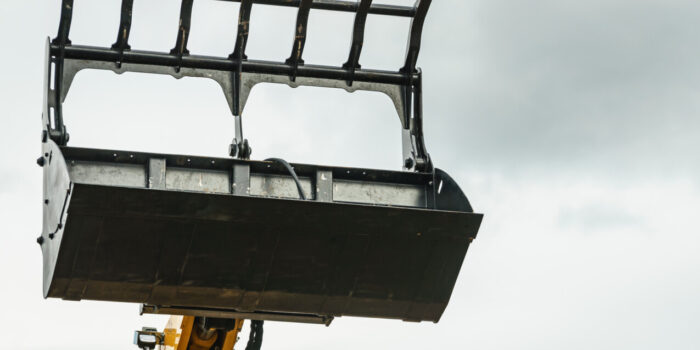Telescopic loaders have become common machines, they are characterised by their wide range of applications and it is hard to find a person who has never seen a telehandler. Do you want to know what the application of this machine is? Telehandlers work well for lifting, carrying and placing various materials and objects at a certain height. They are most commonly found in the agricultural, construction or industrial sectors.
Telescopic handler - characteristics
Telescopic handlers are classified as material handling equipment. They are lift trucks that have a variable reach. They can cope with many tasks, even the most difficult ones. What are their advantages? Certainly the greatest advantage is the high performance and lifting capacity of up to 22 tonnes, while lifting heights reach 30m. Telescopic handlers come in various sizes and have the option of adding attachments, which means additional time and energy savings when carrying out various types of work. The range of manoeuvres is also worth noting, as the loaders are highly manoeuvrable and can therefore be used in confined spaces.
Telescopic loader qualifications:
When it comes to operating a telehandler, specialised qualifications are needed. We would like to remind you that obtaining a licence is a priority. Failure to obtain a licence when operating the equipment risks heavy fines.
The rating for telehandlers is I WJO. This is one of the broadest categories of licence, gaining this licence allows you to operate other forklifts.
Once you have completed the course and passed the examination before the Office of Technical Inspection, you receive your UDT licence and become an operator. In addition, the licence issued by the UDT allows you to work as an operator abroad - for example in EU countries. You receive an indefinite entitlement to operate any type, any brand of interchangeable attachment, this includes:
- Baskets
- Lifting slings
- Drilling rigs
- Spoons
- Sweepers
Who can become a telehandler operator?
Anyone who would like to work in industries such as:
- Agriculture
- Industry
- Construction industry
Such training is usually dedicated to people wishing to broaden their skills or needing to refresh their knowledge. The increasing popularity of telehandlers is prompting more and more people to sign up for courses, as there is a shortage of professional operators on the market. It is proving to be a future-proof and stable job.
What does a professional telehandler operator know?
Every professional boasts impeccable knowledge. Such an operator has knowledge of:
Type and construction
- Health and safety rules
- Organisation of work
- Stand preparations
- Responsibilities before, during and after work
- What is cargo science
- Principles of technical supervision
Classification of telehandlers
- with a typically mechanical drive,
- With drive generated by hydraulic motors.
Where are telehandlers used?
This type of trolley, due to its large size and functionality, is used in:
- Construction
- Agriculture
- Industry
- Municipal works
- Horticulture
They perform best on work related to:
- Transport of materials such as wood, earth, steel structures
- Unloading and loading
- Lifting of materials
What does a telehandler do on a construction site?
- Cranes heavy concrete elements, timber, structures
- Moves materials
- It can also be used on an uncomfortable surface
What does a telehandler do in the agricultural industry?
- places fences (for handling heavy elements)
- loading and unloading of various materials
Telescopic handlers in the timber industry
Applied:
- in the sawmill - works well for handling heavy and wide logs and treated timber.
Construction of a telehandler:
It consists of:
- Internal combustion engine,
- hydraulic boom mechanism including hydraulic pump,
- Front stabilisers,
- Running wheels,
- Operator cabs.
Typical additional fittings:
- pitchforks;
- spoons;
- grippers;
- working platforms;
- ploughs and mowers.
This is the most important information you need to know. Take a course at KURSO for a telehandler!


 Type and construction
Type and construction